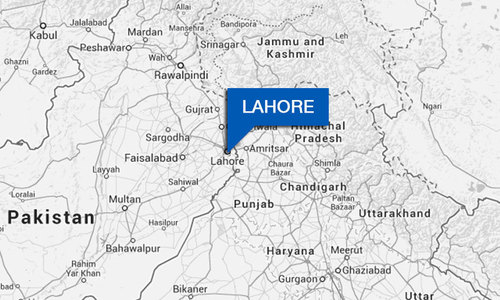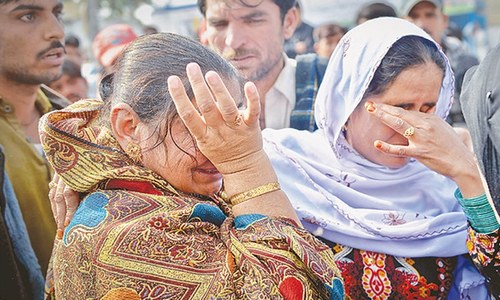Accidents caused by traffic violations have been one of the greatest concerns for developing countries. Unfortunately, Pakistan is ranked at number three in terms of number of fatal traffic accidents in South Asia.
According to the Pakistan Bureau of Statistics, thousands lose their lives in traffic accidents annually. Whereas those who suffer injuries are far more in numbers.
Number one on the list is Afghanistan, at number two is India, that has a huge population in comparison to Pakistan. However, surprisingly, traffic accidents in Bangladesh are far lesser.
To avoid accidents caused by over-speeding and breaking signals, following traffic laws is of utmost importance.

To find solutions for this, Pakistanis have been discussing this at, not only a national level but also at local and regional levels.
Last year, the Sindh provincial assembly approved a bill on increasing fines for traffic violations. But, that has brought about little change; there are two reason behind this.
Firstly, the increment, imposed after a good 49 years, has been criminally nominal. The increase has been from 50 per cent to 300 per cent on different violations. The fine for breaking a red light was increased by 150 per cent, while the fine for not wearing a helmet was increased by 50 per cent.
Secondly, it was implemented without keeping Pakistan's prevalent trend of police bribery in mind. Had they increased the fine by at least 400 per cent, it would have been far more effective, in my opinion.
Currently, the fine for breaking a traffic signal, having tinted car windows or wrong-way driving is an inexpensive Rs 500.
If you aren’t wearing a helmet when riding your bike, the fine is Rs 300.
Over-speeding will only cost you Rs 400.
If your car is unregistered, you will be fined Rs 1000, provided you get caught.
With violations like these, where yours or someone else’s life is in danger, a fine of few hundred rupees make no sense at all. Especially when you can so easily grease palms when you do get caught, which is even cheaper than actually paying the above mentioned low fines.
These fines will be far more effective if the minimum amount is increased to at least Rs 1000, and doubled for repeat violators. I personally believe this will be a great deterrent and a serious warning to habitual violators.
Believe it or not, before last year’s implementation of increased traffic fines, the traffic laws of the year 1965 were still being enforced on roads across Pakistan. As per those laws, the minimum fine for traffic violation was a measly Rs 50 with a maximum of Rs 300. This may have been a huge amount back then, but we are in 2015 today.
And while the purchasing power of the people has increased in the past 50 years, those fines are not true reflection of our current times.
Pakistanis find it easier to pay off policemen in white uniforms (now “officially” gray), than to actually pay the fine — this attitude gives people a “licence” to violate traffic laws without any fear of consequences.
If the fine were increased, with some per cent of it going to the policeman who caught the violator, it could halt, or at least slow down the menace of bribery too.

Many countries around the world have this system successfully implemented. From Alberta Canada, to Jamaica in the Caribbean, increased fines have discouraged traffic violators. In Jamaica, for instance, you can get fined a whopping $ 15,000 for not wearing a helmet!
Even in Germany, where you can drive as fast as you want because certain sections of the country don't have an enforced speed limit, over-speeding in controlled areas can still get you a fine of € 680 (Rs 80,000).
The additional amount collected from increased fines must be used to upgrade and maintain road safety procedures and equipment, such as:
• Educating people regarding traffic rules and regulations
• Teaching learners to operate cars and bikes at government-run driving schools
• Providing traffic police with new motorbikes
• Installing security cameras at signals and intercity roads
• Installing dash cams in police vehicles
• Installing new traffic signs on roads where necessary
Not only will this help the traffic police with their monitoring, it will also safe guard pedestrians.
It is very encouraging to learn that the Lahore Traffic Police has introduced E-Ticketing and the Islamabad Traffic Police is developing a system to collect challans through mobile phones. This needs to be urgently brought to all cities across the country, and its needs to be done now; safety first.
This article originally appeared on Pakwheels.com and has been reproduced with permission.















































